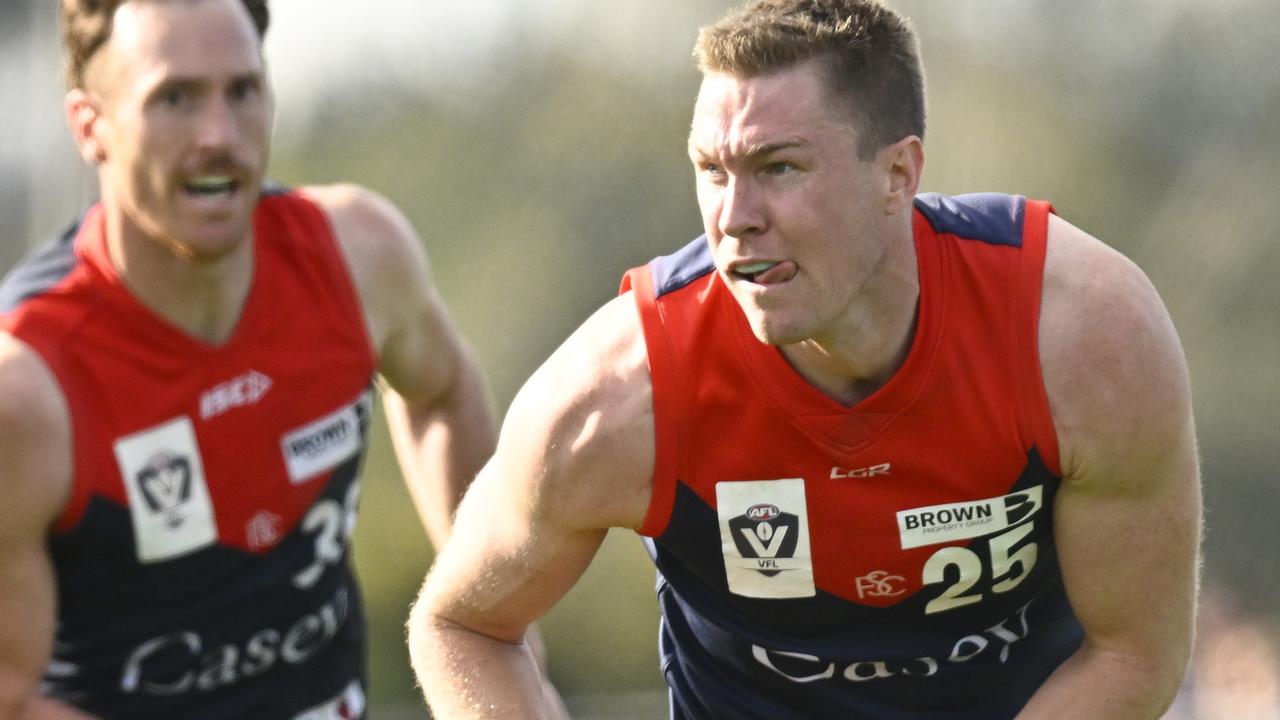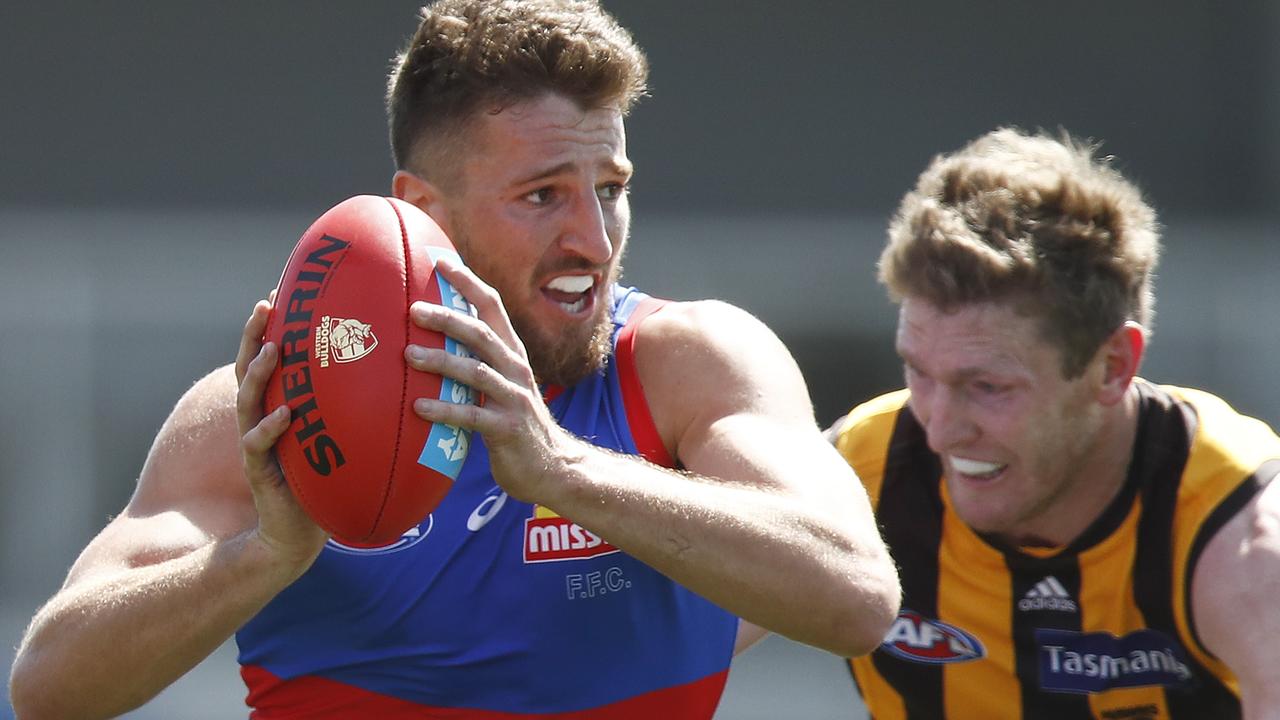Travelling has become a nightmare in 2016 and finishing top two will be critical when finals start, writes David King
TRAVELLING has become a nightmare in 2016 and where the top eight teams finish on the ladder will go a long way to determining their finals fate, writes DAVID KING.
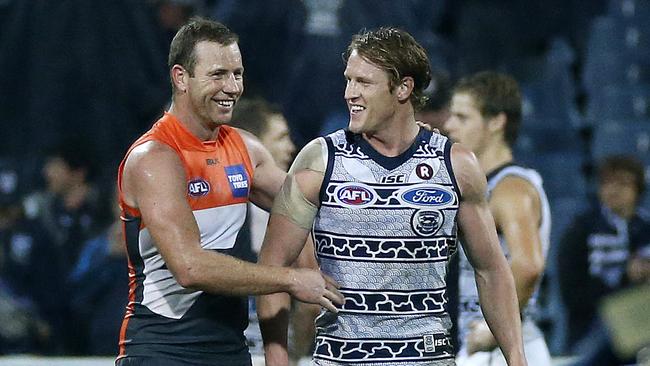
David King
Don't miss out on the headlines from David King. Followed categories will be added to My News.
IF competing against a top-eight team requires a boarding pass, prepare to lose.
No less than 42 times this season AFL teams have exited their local airport full of confidence thinking that securing the four points is possible.
The reality is only three times that been the case. Less than 10 per cent of teams travelling and competing against the best have returned victorious.
In the 2015 home-and-away season it was a very different story.
Then 18 of 68 interstate sorties against top-eight teams proved successful with six teams winning multiple times on the road.
Approximately one in every four clashes, 25 per cent, compared to this year’s 8 per cent. This has been a significant move.
Last season, Hawthorn’s five from five travel record made a mockery of the discussion but the gap between Hawthorn and the Western Australian teams back to the chasing pack perhaps wasn’t as evident until the final curtain was drawn.
Why is travelling such an imposition?
Is it the crowd support? The umpiring?
This isn’t as crazy as it sounds — the free kick ratio supports the home team and maybe that’s crowd related.
Is it the altered pre-game routines? The venue shape or quirkiness?
Whatever it is, the anytime-anywhere notion has been shown to be a nonsense.
While an undeniable fact during the home-and-away season, the true significance of this development will be sheeted home in September.
It means that given the enormity of home ground advantage against the best, for the first time qualifying for a top-two position is critical, not the top four as historically has been sought after.
There may be a quirk in which two local teams compete — 1st v 4th, for instance — but if you’re boarding a plane, prepare for disappointment.
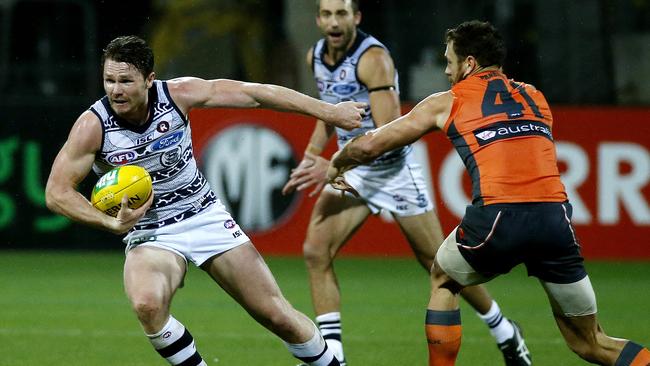
It’s akin to the Monaco Grand Prix where only the first two on the grid can win, barring a disaster.
Disregard the constant dialogue regarding “they can” or “they can’t” win it this early in the qualifying rounds.
It’s all about grid position. That’s why Geelong’s loss to the Saints last weekend will come back to haunt.
Why the Adelaide and Greater Western Sydney fixtures on the run home will prove so influential.
Why Sydney’s next three weeks is season-defining — two home games against the Western Bulldogs and the Hawks with a trip to the Cattery wedged in between.
The West Coast Eagles have travelled as successfully as Vegemite, a problem that will see them jet-lagged through a finals campaign.
Winless from four attempts against the top eight teams on the road, but they aren’t alone with this issue.
The top-eight team that travels to compete against a fellow top-eight rival in 2016 has only won three times from 18 games.
The biggest issue facing all non-Victorian clubs is that the Grand Final is at the MCG.
“You gotta go through Chicago,” as Michael Jordan said in the late 90s and let’s face it, Hawthorn has owned Chicago.
On the numbers this season, if a Victorian team plays a non-Victorian team in the Grand Final, they can’t win.
Time ultimately will tell. The game lacks parity, regardless of any equalisation methods, while our national competition locks in the season’s culmination at Jolimont.
We say every season that percentage is crucial but given the state of the ladder it’s never been more important.
If Adelaide beats Melbourne on Sunday and the Western Bulldogs can find a way to defeat Sydney, on the road (not happening), then we will have six teams on 10 wins, second through to seventh on the ladder!
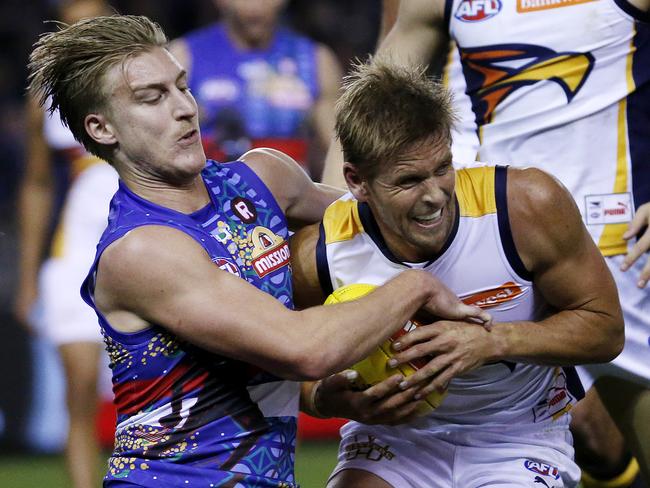
Don’t dare tell me the fixture isn’t a factor for achieving premiership glory.
Below is a table of the remaining games of the top-eight teams.
The ease of some fixtures compared with others will dictate the pole positions one and two and ultimately the slip lane to the Grand Final.
This season is the most even we’ve seen since possibly 1993, when 1½ wins separated first from seventh and the Baby Bombers caught fire late in the year.
In a small-margin season, travel is torture against the best.
While there’s no logical reason as to why, it remains a statistical fact.
Trends are your friends in analysis. Boarding passes equal disappointment in 2016.
Disarm doors and crosscheck — the flight for Chicago is about to take off.
MATCHES TO COME AGAINST TOP-EIGHT TEAMS
1. Hawthorn (44pts) — 3
2. Sydney (40) — 4
3. Geelong (40) — 3
4. GWS Giants (40) — 2
5. North Melb (40) — 5
6. Adelaide (36) — 2
7. W Bulldogs (36) — 3
8. West Coast (32) — 4

 Given the enormity of home ground advantage against the best, qualifying for a top-two position is critical, not the top four as historically has been sought after.
Given the enormity of home ground advantage against the best, qualifying for a top-two position is critical, not the top four as historically has been sought after. 
